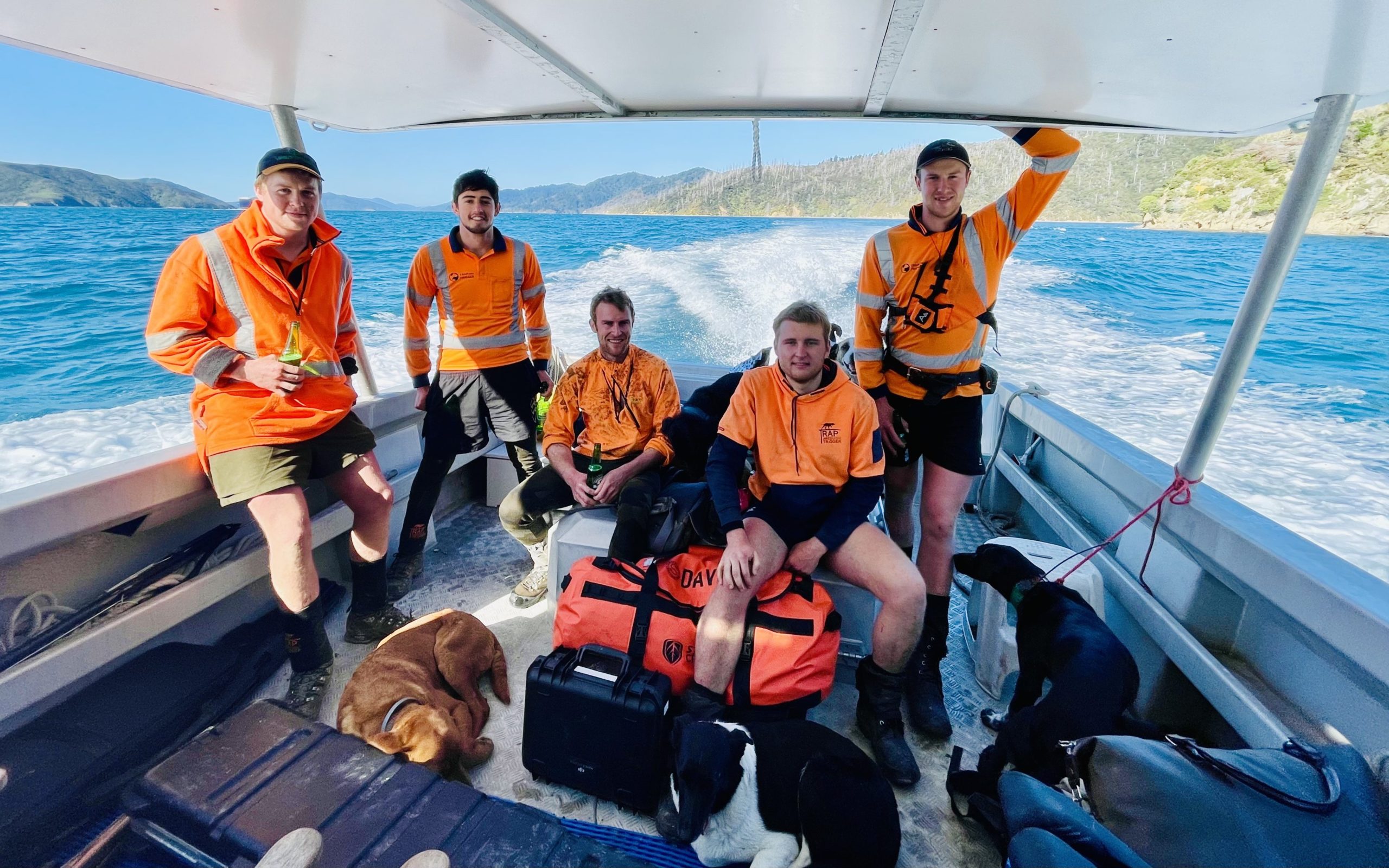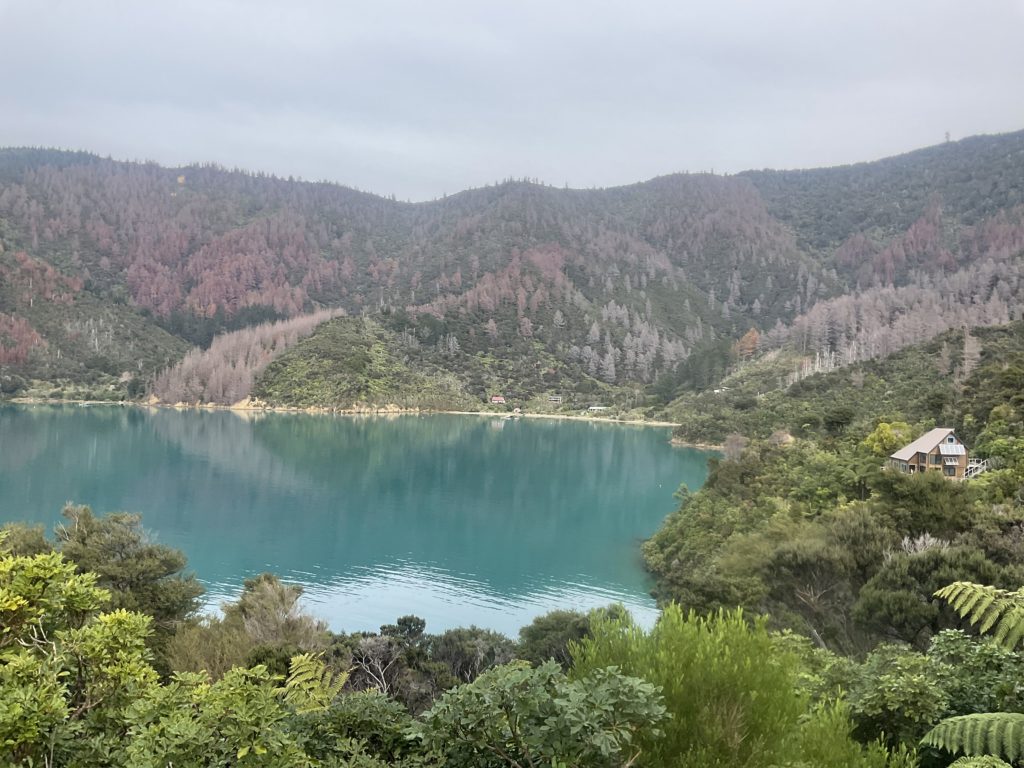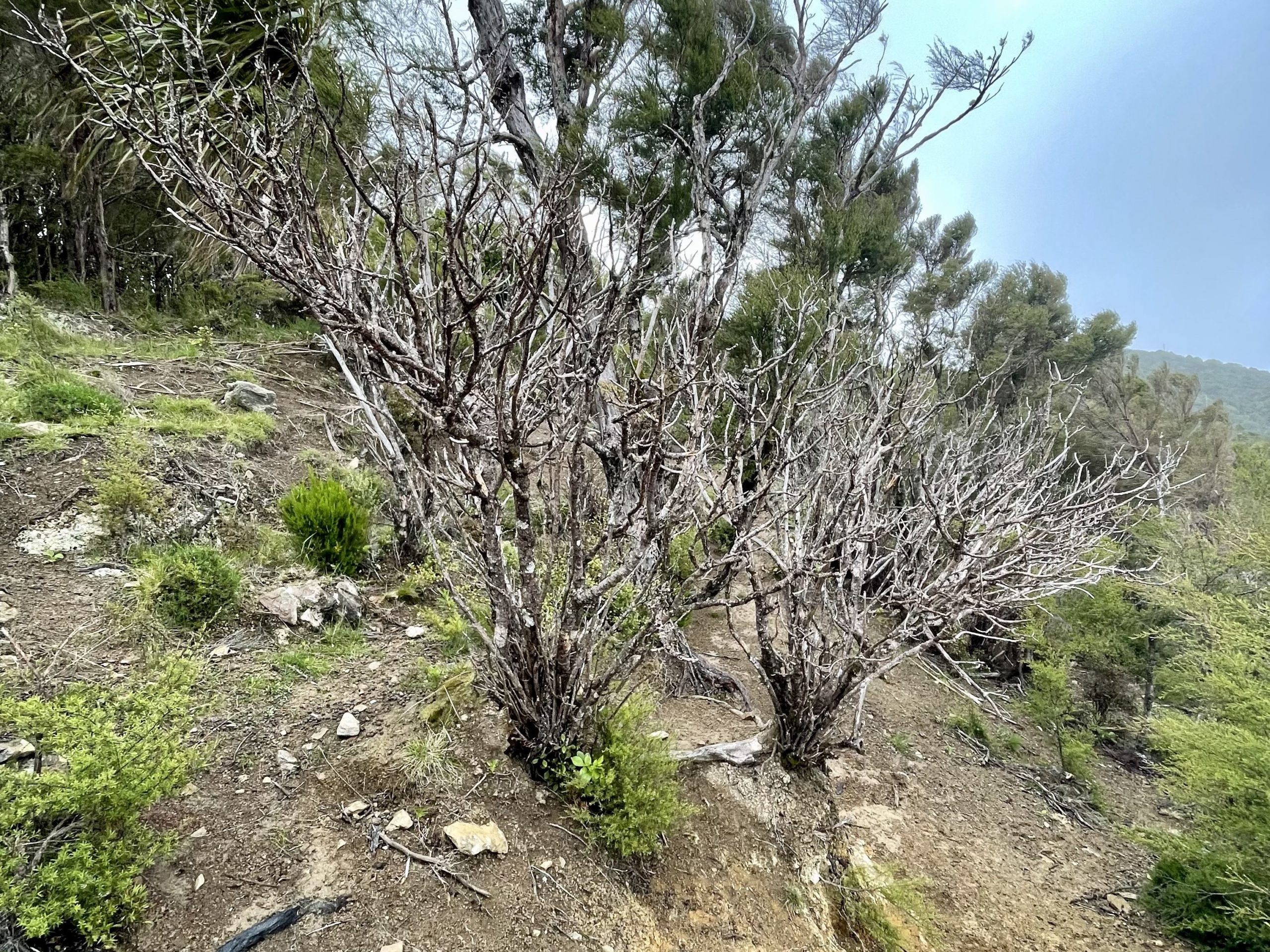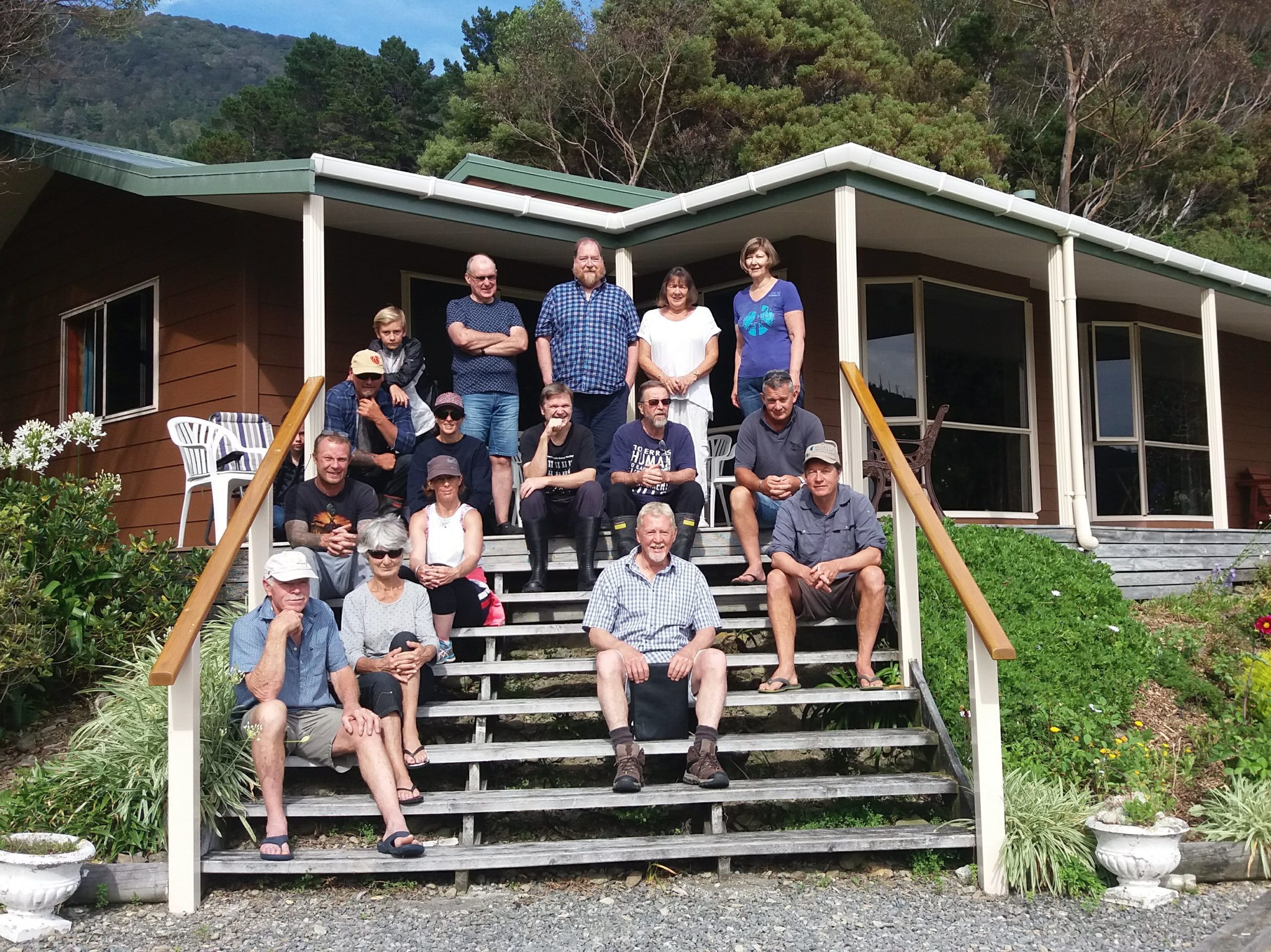A gutsy group of Queen Charlotte Sound locals are chasing their dream of a regenerated native forest. Propelled by community camaraderie the group has removed wilding pines, brought down goat and possum numbers and is now ready to start planting natives on a swath of land between Picton and the Tory Channel.

Growing community

Queen Charlotte Sound is a picture-postcard collection of undulating hills and peaceful, private bays. Because of the lie of the land, people tend to live far apart, often without road access. Getting to know your neighbours isn’t always easy.
The native forest project isn’t just about growing trees – it’s also breathed new life into the community. Phil Wright is the spokesperson for the group and lives in Maraetai Bay with his wife. “Before the regeneration project, we didn’t really know our neighbours well,” he says.
Ambitious projects like this one rely on a solid community. Phil says one of the big highlights has been the way it’s brought everyone together.
“It’s the community spirit that’s driving it all – the preservation work we’re doing has gathered us all together,” Phil says.
Not wild about wildings
In the early part of the twentieth century, much of the beech forest that covered the hills in the Sound was cleared for farming. The farms never really took off, but wilding pines found a foothold in the deforested land. Phil says, “when we first moved to the bay ten years ago, the biggest pest was wilding pines.”
Wilding pines are a growing problem in many parts of the country, and the fast-growing trees have marched relentlessly over parts of Queen Charlotte Sound. As well as crowding out native trees, wildings acidify and deplete soils, suck up vast amounts of water, and pose serious fire risks. The pines also provide a habitat for introduced plants and animals like possums.
Before planting native trees, the group needed to get rid of the wildings. With generous support from the Sounds Restoration Trust and local landowners, they raised over $200,000 to fund their operations. They spent the first few years poisoning the trees and have now cleared the hills of the pesky pines.
Got your goat

With pines out of the way, they turned their attention to the feral goats munching their way through the valleys. Phil says the goats had become a serious issue for the region.
“In some places, goats were clearing the greenery in the valleys – completely eating out the undergrowth,” he says.
It wasn’t hard to convince the group that goats were a problem. When they called a meeting to talk about it, the goats got the memo too – a group of six turned up on the lawn in the middle of the debate.
“That convinced the meeting we needed to do something!” Phil laughs.
Andrew Macalister, regional coordinator for the Marlborough Sounds Restoration Trust, put them in touch with a helicopter company that uses thermal imaging cameras to target introduced predators.
The helicopter flies in the morning and evening when the bush is cold. That way, the warm-blooded goats will appear clearly on their cameras. Then two hunters must visually confirm the animal before targeting it. So far, they have eliminated more than 400 feral goats from lands between the Tory Channel and Waikawa Bay.
The goat cull has been a big win for the group, but Gary Harris, who now oversees goat control for the project, cautions against getting too complacent.
“It’s a great result so far, but we need to be in this for the long game,” Gary says. “Goats can re-establish themselves quickly. We’re hoping goat management strategies will be adopted by landowners further out from our culled area, which will benefit all of us who work and play in the Sounds.”
As well as targeting goats, the group has managed to get possum numbers down using autotraps bought with a Working for Nature grant.
Forests for the future

The project has been an enormous success so far. As well as the strong community spirit, having a clear vision of the steps they needed to take has helped.
“The plan was to eradicate the pines, goats and possums that stop the forest from regenerating before planting natives. Now we can turn our focus to planting trees and trapping rats and stoats.”
They’re already starting to see results. While kānuka and mānuka were already growing in the valleys, they’re now seeing the white pluming flowers of kamahi, the bright orange berries of the karaka (a favourite snack of the kererū) and the brilliant yellow flowers of the kōwhai. They hope to plant rimu and beech in the future.
It’s not just about trees though. The group’s ambition is to revitalise the whole forest ecosystem, which means birds, lizards, and invertebrates too.
“The advice we had was that the birds and other fauna won’t come back unless you have the right trees to support them. Just eradicating the introduced predators won’t bring the birds back,” Phil says.
Already, birds like weka are returning to the valleys, and the dawn chorus is more vibrant.
Phil is pragmatic about how long it will take. “We know that what we’re doing will benefit future generations, even if we won’t see the finished result,” he says.
Join the Predator Free 2050 movement!
Keen to start your own backyard trapping group? There are lots of handy tips and hints on our website or check out our interactive map to find a group near you.

